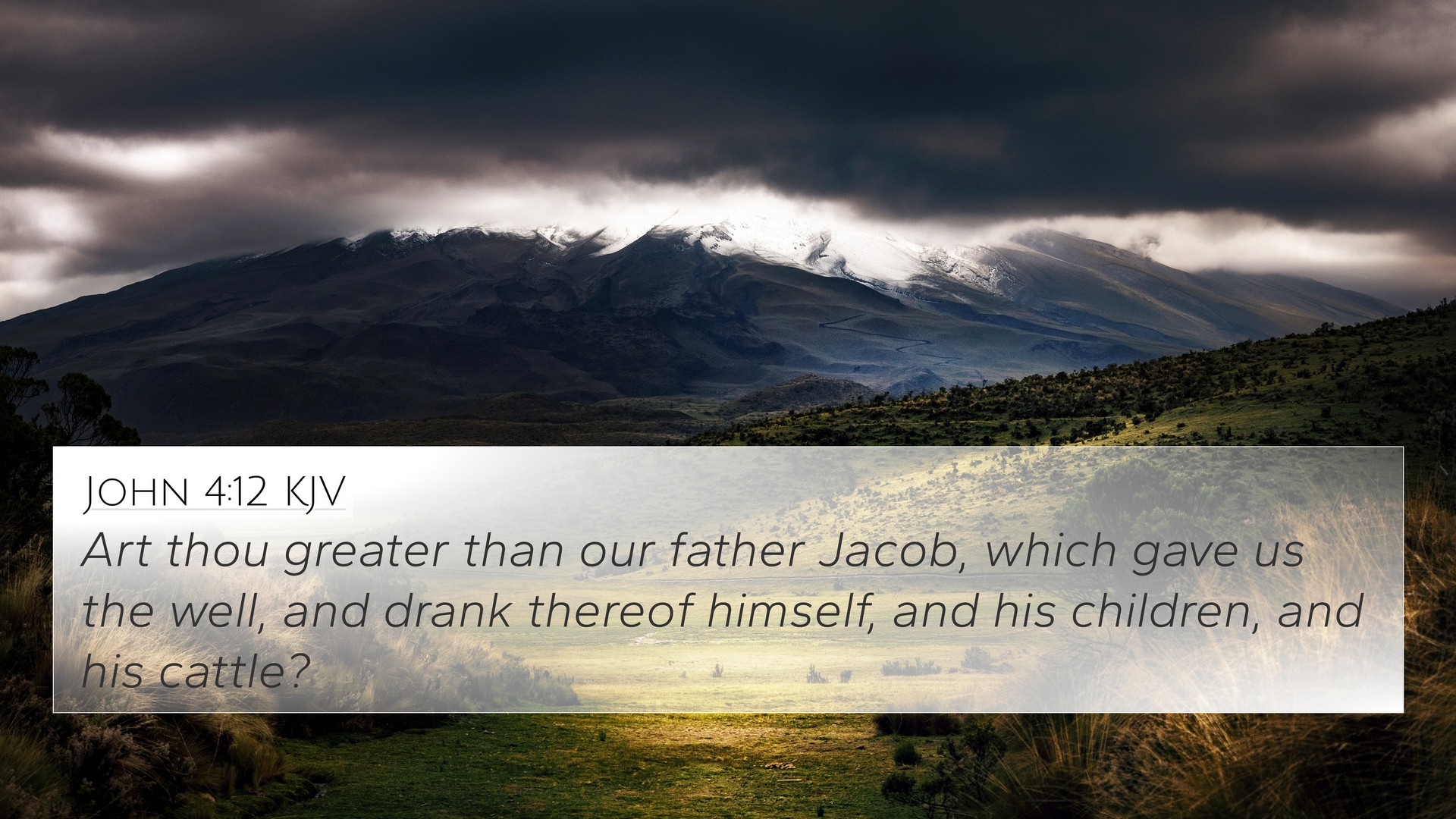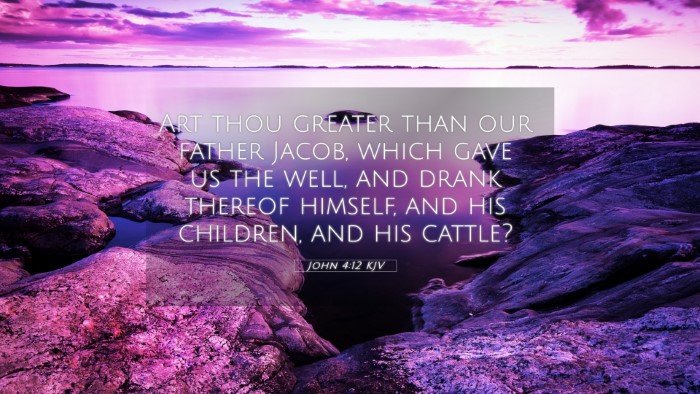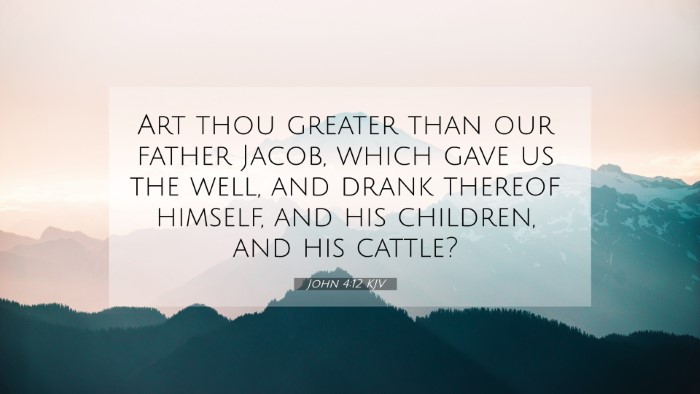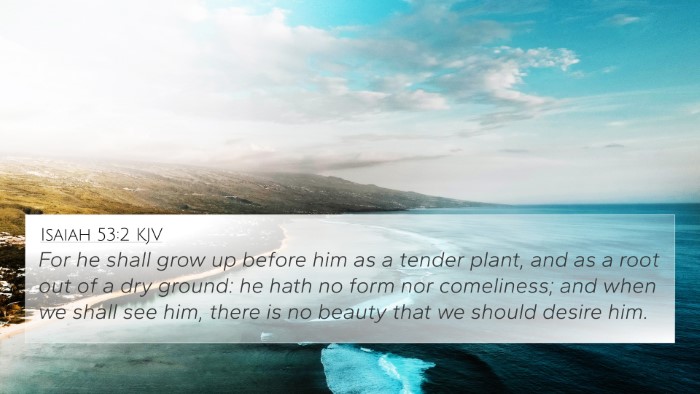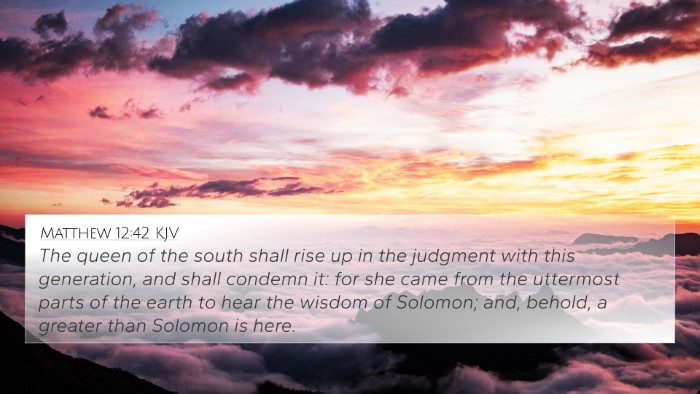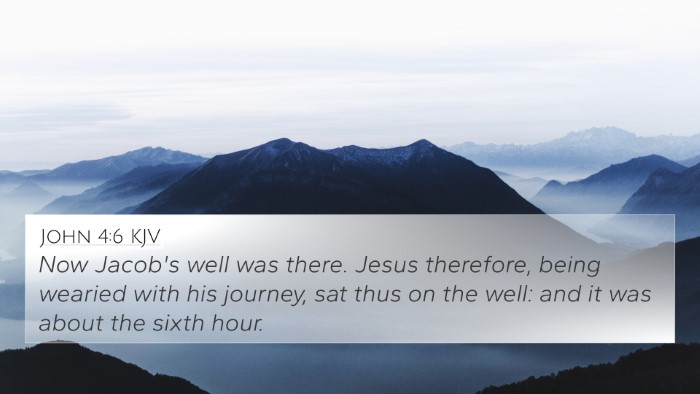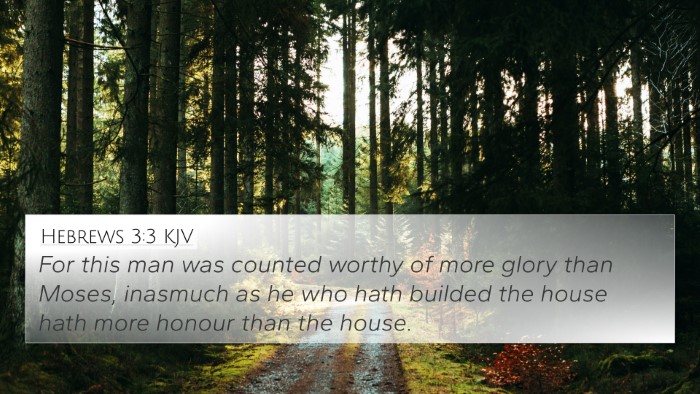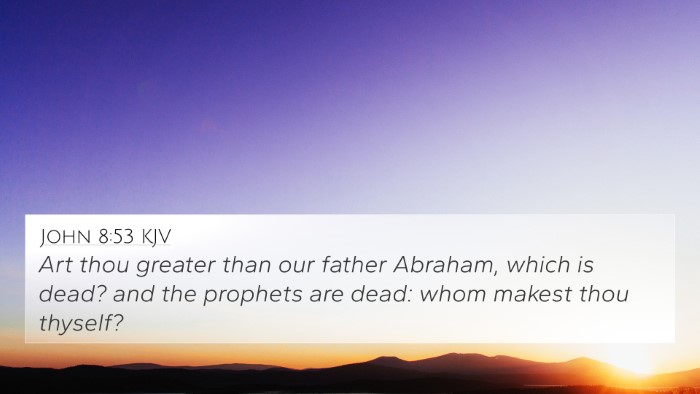Understanding John 4:12
Verse: "Are you greater than our father Jacob, who gave us the well and drank from it himself, as did also his sons and his livestock?"
In this verse, the Samaritan woman, while speaking to Jesus, raises an intriguing question about the historical significance of Jacob's well and the identity of Jesus. This statement serves as a pivotal point to explore deeper biblical themes concerning heritage, spiritual thirst, and the identity of Christ.
Summary of Insights from Public Domain Commentaries
This analysis incorporates insights from renowned biblical commentators including Matthew Henry, Albert Barnes, and Adam Clarke.
- Matthew Henry: Henry emphasizes the cultural context within which the woman speaks. Her question reflects a common Jewish-Samaritan contention regarding lineage and the significance of Jacob as a patriarch. This also serves to highlight the respect and reverence held for ancestors in their society.
- Albert Barnes: Barnes points out the irony in the woman’s statement. She not only acknowledges Jacob's importance but inadvertently positions Jesus in a juxtaposition to Jacob, inviting the question of who Jesus truly is compared to this ancestral figure.
- Adam Clarke: Clarke delves into the metaphorical implications of the well. He interprets it as a symbol of worldly sustenance versus the spiritual drink that Jesus offers. This encounter illustrates the transition from physical needs to spiritual fulfillment.
Thematic Connections in John 4:12
This verse stimulates various themes through its context, reinforcing the idea that there are interconnections between different biblical narratives.
Key Themes Explored:
- Cultural Heritage: The question posed by the Samaritan woman illustrates how deeply rooted cultural identities can affect spiritual conversations.
- Identity of Christ: This verse is pivotal in the revelation of Jesus as the Messiah, transitioning from a discussion of earthly origins to divinely preordained identity.
- Spiritual Thirst: A key theme in the chapter is the contrast between physical and spiritual thirst, urging readers to seek true satisfaction in Christ.
Cross-References to John 4:12
Here are some notable cross-references that further illuminate the meaning of John 4:12:
- John 4:10: Jesus speaks of living water, directly addressing the need for something greater than Jacob's well.
- Genesis 28:10-22: The account of Jacob and the well he dug, providing historical context to the woman's question.
- John 6:35: Jesus identifies Himself as the bread of life, paralleling the idea of physical versus spiritual sustenance.
- Jeremiah 2:13: The metaphor of broken cisterns serves as a commentary on the folly of forsaking God for temporary satisfaction.
- Matthew 5:6: "Blessed are those who hunger and thirst for righteousness," linking the concept of thirst to spiritual longing.
- Psalm 42:1-2: The imagery of longing for God as a deer pants for water highlights the necessity of spiritual fulfillment.
- Isaiah 55:1: An invitation to come and receive spiritual nourishment, resonating with Jesus' message to the Samaritan woman.
Understanding the Connections Between Bible Verses
The cross-references highlight significant connections and themes prevalent throughout scripture. Understanding these links is crucial for a well-rounded study of biblical texts.
Tools for Bible Cross-Referencing
Utilizing a Bible concordance or cross-reference Bible study guide can significantly enhance your study by revealing interconnected scriptures. Here are methods for effective cross-referencing:
- Identifying Themes: Look for common themes across different verses to draw parallels, such as spiritual nourishment.
- Historical Context: Utilize commentaries to understand the historical significance of specific scriptures and their interconnectedness.
- Comparative Study: Engage in a comparative study of Pauline epistles with the Gospel of John to recognize overarching theological frameworks.
Conclusion
By delving into John 4:12, we uncover a rich tapestry of themes and connections that enhance our understanding of scripture. Jesus’ conversation with the Samaritan woman transcends mere physicality to reveal deeper spiritual truths, inviting us to explore the vast inter-Biblical dialogues and connections that inform our faith.
Embarking on a journey through the Bible while leveraging scriptural cross-referencing can yield profound insights into the nature of God and the fullness of life offered through Christ. May this exploration stimulate a deeper appreciation for the Word of God and its relevance in our lives today.
